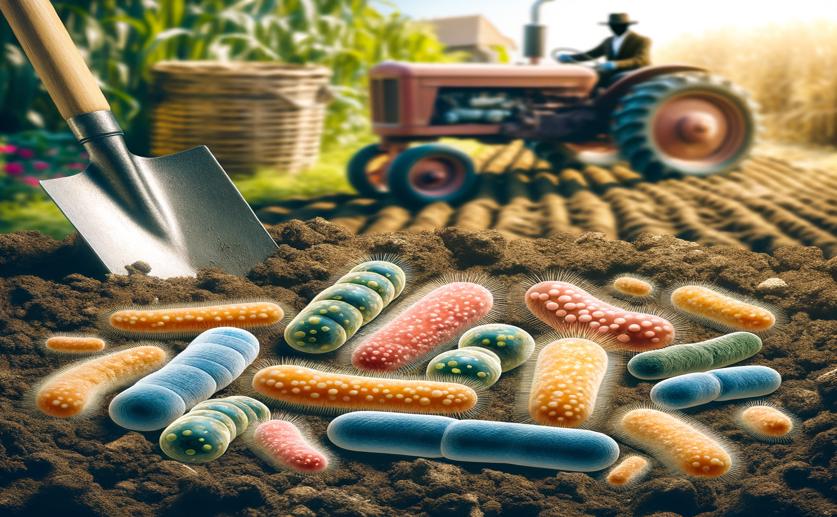
Uncovering the Diversity and Potential of Helpful Soil Bacteria
Greg Howard
18th June, 2024

Image Source: Natural Science News, 2024
Key Findings
- The study, conducted in Allahabad, India, isolated 87 Bacillus strains from organic farm soil
- Two strains, PR30 and PR32, identified as Bacillus subtilis, effectively fought the plant pathogen Ralstonia solanacearum
- These strains also promoted plant growth by producing beneficial substances like plant hormones and solubilizing phosphate
- In pot experiments, PR30 and PR32 significantly improved seed germination, root and shoot length, and nutrient content in tomato, broccoli, and chickpea plants
References
Main Study
1) Molecular Characterization Reveals Biodiversity and Biopotential of Rhizobacterial Isolates of Bacillus Spp.
Published 18th June, 2024
Journal: Microbial ecology
Issue: Vol 87, Issue 1, Jun 2024
Related Studies
2) Bacillus amyloliquefaciens as an excellent agent for biofertilizer and biocontrol in agriculture: An overview for its mechanisms.
3) Nematicidal Volatiles from Bacillus atrophaeus GBSC56 Promote Growth and Stimulate Induced Systemic Resistance in Tomato against Meloidogyne incognita.
4) Conservation Biological Control of Pests in the Molecular Era: New Opportunities to Address Old Constraints.



 12th June, 2024 | Jenn Hoskins
12th June, 2024 | Jenn Hoskins